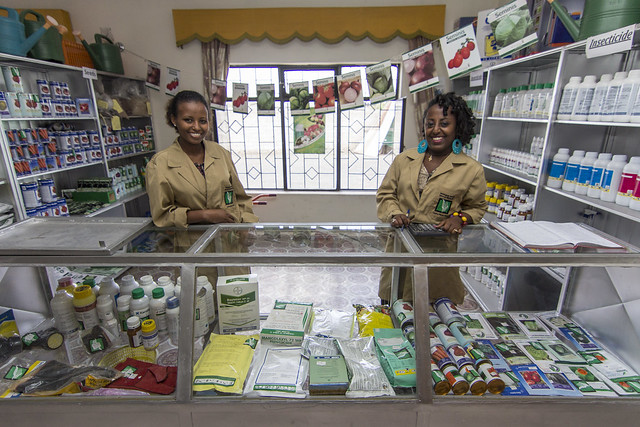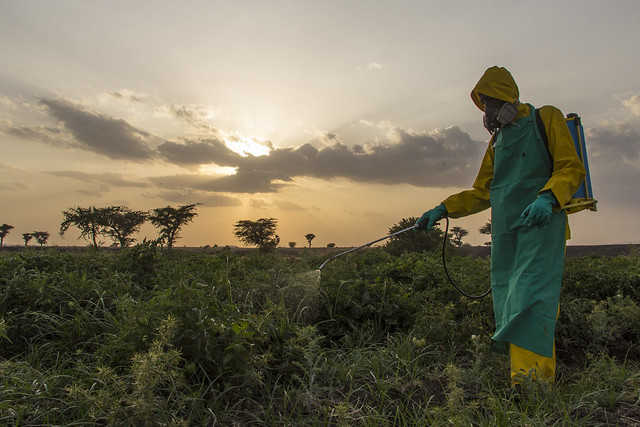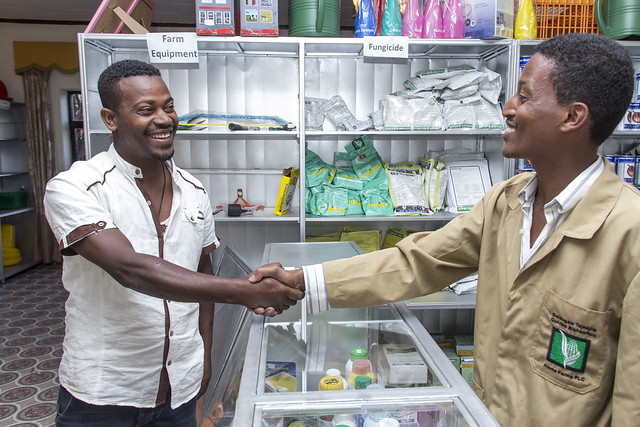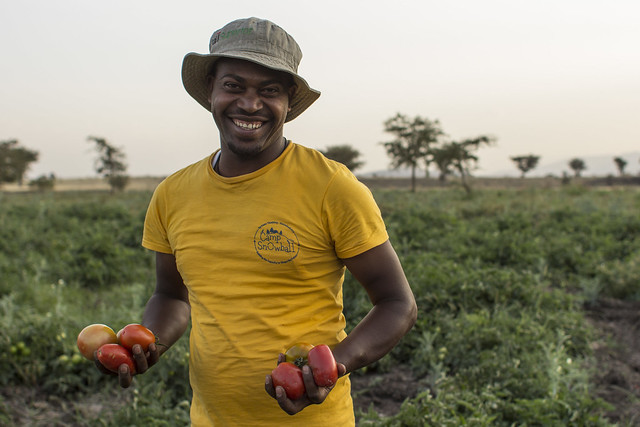In Ethiopia, where agriculture accounts for almost half of the country’s GDP and is the main source of income for more than 85 percent of the population, improvements in quality life often depend on what families are able to harvest and sell at market.
However, smallholder farmers in Ethiopia often have limited access to inputs, information and services they need to grow a better future.
To address this, Feed the Future is piloting a new program in Ethiopia that provides what agriculture and livestock producers need: a locally-owned, one-stop shop where smallholder farmers can access a diverse array of inputs, such as seeds and fertilizer, as well as expertise and training.

Sales clerks Hiwot Tefera and Beyenech Gossaye welcome customers at a Farm Service Center in Ethiopia. They offer high-quality products, services and expertise to address the needs and questions of smallholder farmer customers. Photo by CNFA
Adapted for Ethiopia from similar successful programs in Georgia, Moldova and Afghanistan, these Farm Service Centers—currently operating in six towns in Ethiopia—have an agronomist and veterinarian on staff to address farmer questions and concerns. They also provide regular trainings on topics like business management, environmental mitigation, and marketing and communication to empower farmers to change the way they manage their farmers and boost the quantity and quality of theirproducts.

Dawit Wondimu is an agronomist on staff at a Farm Service Center in Ethiopia. He’s conducting a fee-for-service pesticide spray for a smallholder farmer customer. The center offers trainings on the safe use, storage, transportation and disposal of agrochemicals. Photo by CNFA
Each center matches Feed the Future’s initial start-up investment to promote long-term sustainability. They offer high quality products and fair pricing, calibrated to their target customer: smallholder farmers.

David Wondimu (right) welcomes Minda Ayalew, a smallholder farmer, to a Farm Service Center in Ethiopia. Minda needed advice on herbicides and how to best use them—he found it here at the center. Photo by CNFA
What do the customers think?
So far, their positive reaction has been astounding. “I’ve never seen any other place in town that is as appealing to shop in, that is very clean and safe for medicines, and that provides quality products on a timely basis,” said customer Chaltu Senbetu.
Another customer, Atsede Abate, brought in a dying calf for treatment and walked out with the knowledge and medicine he needed to nurse it back to health. “I believe this center brings hope to many of us in the town as it is accessible, knowledgeable and welcoming,” he said.

Minda Ayalew grew a greater harvest of tomatoes this season with the inputs he purchased and expert consultation he received at a Farm Service Center in Ethiopia. Photo by CNFA
By providing smallholder farmers with access to knowledge and affordable, quality agricultural inputs, Feed the Future is helping empower them to grow a better future for their families and communities.






